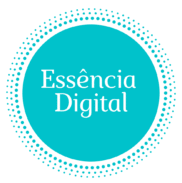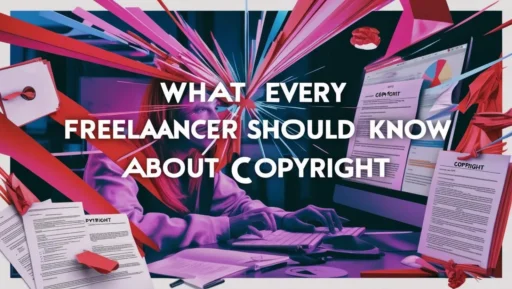Copyright is the invisible framework that governs creative work. Whether you’re a writer, designer, photographer, translator, developer, or content creator, understanding copyright is essential to protecting your work, respecting others’ rights, and avoiding legal (and reputational) headaches. Freelancers who understand copyright build safer, more professional, and more profitable businesses. Yet, myths and misunderstandings abound. This comprehensive guide breaks down copyright basics, addresses common freelancer scenarios, explains client agreements, and arms you with best practices for every project.
Copyright: The Basics Explained
What is Copyright?
Copyright is a legal right that provides creators of original works (like text, images, music, software, etc.) with the exclusive right to use, reproduce, adapt, distribute, perform, or display their works—typically for the creator’s lifetime plus several decades (e.g., 70 years in the US and EU).
Key points:
- Copyright protects the expression of ideas—not the idea itself, facts, or methods.
- It arises automatically when an original work is created—no registration required (though registering adds legal strength).
- The copyright holder can license or sell these rights to others.
Copyright and Freelancing: Who Owns What?
Work Created for Clients
This is the most common issue freelancers face. Who “owns” the work you create as a freelancer?
- Default Rule:
Unless specified in a contract, freelancers typically retain copyright to their work. The client gets an implied license to use the work for agreed-upon purposes. - Work-for-Hire & Assignment:
Many contracts specify that the client gains full copyright ownership (known as “work-for-hire” in the US and “assignment” elsewhere). This means you give up all rights to the work after payment. - Licensing:
You may allow clients to use your work under certain conditions (geographic limits, duration, media type) while retaining ultimate ownership yourself.
Solution:
Always clarify in your contract:
- Who owns the final copyright?
- Can you showcase the work in your portfolio?
- Are there use limitations or requirements for attribution?
Using Others’ Work in Your Projects
When freelancing, you’ll often need to use pre-existing content—stock photos, fonts, code snippets, quotation excerpts, music tracks, etc.
- Only use content you have the rights for: Purchase licenses, use creative commons, or use works in the public domain.
- Don’t assume “everything online is free”: Google Images, excerpts from books, or random web assets are almost always protected.
- Keep documentation: Maintain records of all purchases, licenses, and permissions for content you use.
Misuse can lead to take-downs, lost clients, or even lawsuits.
Attribution and Moral Rights
Some works require attribution (credit to the creator) even if you have a license. Attribution must be clear and follow specified guidelines.
“Moral rights” may also persist even after copyright is assigned, such as the right to be credited or to object to derogatory uses of the work (these rules vary internationally).
Fair Use and Exceptions
- Fair use (US) / fair dealing (UK, Canada, Australia): Allows limited use of copyrighted works without permission for commentary, parody, criticism, education, or news reporting.
- Caution: Fair use is complex and often subject to legal interpretation—don’t rely on it for commercial freelance work unless you’re certain.
- Always err on the side of caution: Seek permission when in doubt.
Licensing Your Own Work: Protecting Your Interests
- Decide whether to offer exclusive (only the client can use it) or non-exclusive (you can also license to others) rights.
- Limit use to specific purposes, regions, or durations—tailor the license to fit the fee.
- Use clear, written agreements to outline terms.
- Consider registering your major works in official copyright offices for extra legal protection.
What to Do If Someone Steals Your Work
- Reach out directly: Often, a polite but firm email asking for removal or credit solves the issue.
- Platform take-downs: File DMCA (Digital Millennium Copyright Act) notices for web or social media content.
- Legal action: For serious cases and high-value works, consult a copyright attorney.
Prevention—via watermarks, unique signatures, and careful client vetting—remains the best defense.
Open Source, Creative Commons, and Royalty-Free Licenses
- Open Source: Software with licenses that allow free use, modification, and sharing—each license (MIT, GPL, Apache, etc.) has its own rules. Always follow attribution and distribution terms.
- Creative Commons: Allows creators to specify how their work can be used. Always honor requirements for attribution, commercial use, and derivatives.
- Royalty-Free: You pay once for perpetual use, but restrictions may apply (prohibited uses, resale, etc.).
Always review and comply with the specific terms of any open license.
Copyright in the Digital Age
- Digital footprints: Web postings and uploads create a trackable, timestamped record of your work’s creation.
- Registration: While not necessary for basic protection, registration enables you to seek statutory damages and pursue infringement court cases more easily.
- AI-generated content: Laws are evolving; know that many jurisdictions do not grant copyright to works made solely by non-humans.
Best Practices for Freelancers
- Put everything in writing—don’t rely on verbal agreements.
- Ask for permission or licenses upfront: Don’t wait until a project is done to clarify copyright issues.
- Always credit other creators when required.
- Educate your clients: Many don’t understand copyright nuances—explaining why certain terms exist can build trust.
- Stay current: Copyright law and norms are regularly evolving, especially in the digital world.
Conclusion: Copyright Awareness is Professionalism
For freelancers, ignorance of copyright isn’t just risky—it’s unprofessional. By understanding and respecting copyright, you protect your work, support a fair creative ecosystem, and demonstrate expertise to clients. Make copyright literacy a permanent part of your freelance business toolkit.

